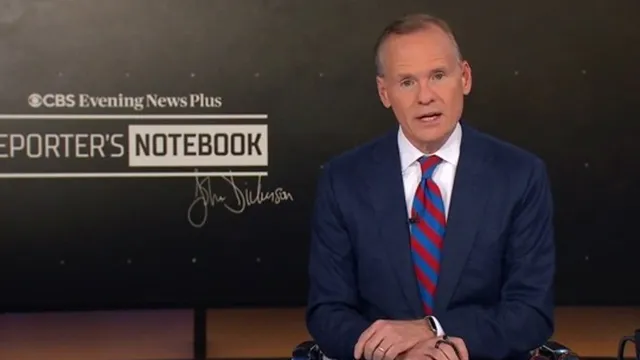
Paramount pays Trump $16 million to settle dubious lawsuit
2025-07-03 18:04- Paramount Global agreed to resolve a lawsuit with President Trump over a '60 Minutes' interview with a $16 million settlement.
- This settlement will go towards Trump's future presidential library and does not involve an apology from Paramount.
- Critics argue that settling reflects ongoing tensions between corporate interests and journalistic integrity.
Express your sentiment!
Insights
In the United States, Paramount Global agreed to pay $16 million to President Donald Trump to settle a lawsuit stemming from a '60 Minutes' interview that aired in October 2020 with Kamala Harris. Trump had alleged that the segment was misleadingly edited, which he claimed constituted election interference. Initially, he sued for $10 billion, later increasing the demand to $20 billion. Legal experts criticized Trump's lawsuit as frivolous, asserting that mainstream media outlets like CBS protected by First Amendment rights. Nonetheless, Paramount faced financial pressures related to a lucrative merger with Skydance Media, prompting the desire to resolve the lawsuit without prolonged legal battles. Amid ongoing negotiations, there was significant public criticism, with politicians and media professionals, including many from CBS, voicing their concerns about the implications of settling with Trump. The lawsuit was founded on Trump’s perception of bias against him and his allegations that the editing techniques employed by CBS harmed his reputation and distorted the truth. As part of the settlement agreement, the entirety of the $16 million would be allocated towards the establishment of Trump's future presidential library, and not directly paid to him. A significant outcome of this settlement is that in future, '60 Minutes' will release complete transcripts of interviews with presidential candidates post-broadcast. This could indicate a shift towards greater transparency in political media coverage. Legal experts argued that CBS had a strong case, but corporate strategies and potential mergers influenced the decision to resolve matters quietly rather than risk a drawn-out court case. The underlying issue raised concerns about journalistic integrity and the pressure media companies may face from political figures, raising fears of a chilling effect on press freedoms. In conclusion, the deal not only reflects the complexities of media relations with political figures but also highlights the precarious balance between editorial independence and corporate interests. The settlement could set a precedent for how similar lawsuits may be handled in the future, especially as Trump continues to challenge media entities he perceives as adversarial.
Contexts
The impact of media settlements with politicians is a critical topic that sheds light on the intricate dynamics between the media, political entities, and public perception. Media settlements often arise from disputes related to defamation, libel, or misinformation, and these agreements frequently include financial compensation alongside provisions for retraction or clarification of previously published content. Such interactions can significantly influence the political landscape, as they often serve to either vindicate or silence public figures, ultimately shaping their reputations and defining their narrative in the public eye. The outcomes of these settlements can lead to a recalibration of trust in media outlets, as audiences may question the motives and biases behind reporting that results in legal actions and settlements. One key aspect of media settlements with politicians is their ability to alter public perception and can sway electoral outcomes. When a politician successfully settles a case against a media outlet, it may reinforce their support base, presenting them as victims of media bias or misinformation. This can rally followers and garner sympathy from undecided voters, impacting future elections. However, in other instances, a settlement could lead to damaging revelations about a politician's behavior or character, which may subsequently harm their public standing. Moreover, media organizations may face scrutiny over their editorial practices following a high-profile settlement, potentially leading to changes in how political reporting is approached in the future. The legal framework governing media settlements is also of paramount importance, as it often reflects broader societal norms regarding free speech and the accountability of public figures. In countries with more stringent libel laws, politicians may find themselves having greater leverage in negotiations—resulting in higher settlements or more favorable terms for the accused. Conversely, in regions where freedom of the press is prioritized, media outlets may push back against settlements, arguing for their right to report on matters of public interest without fear of reprisals. Thus, the negotiation outcomes of settlements can impact not just the individuals involved but also set precedents for how the media operates and its approach to covering political affairs. Ultimately, the consequences of media settlements with politicians underscore the interconnectedness of journalism, politics, and public trust. Such settlements highlight the need for transparency and ethical reporting standards, as both politicians and media organizations navigate the complex terrain of public opinion, legal accountability, and the pursuit of truth. As the landscape of media continues to evolve in the age of digital information and social media, the implications of these settlements will likely grow in complexity, demanding ongoing analysis and vigilance from researchers, policymakers, and the public alike.